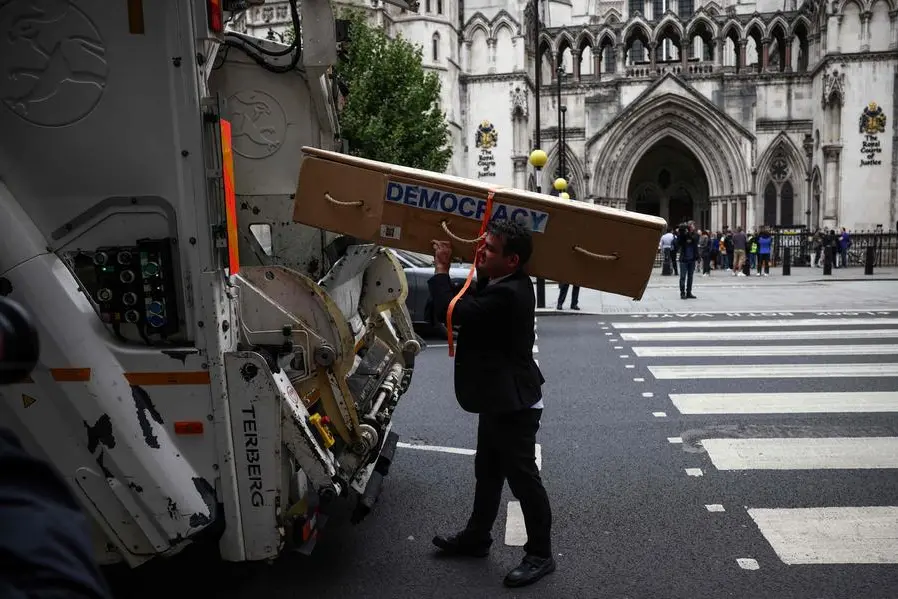PHOTO
The High Court in London ruled Friday that contentious plans by the city's mayor to extend a scheme requiring more polluting vehicles to pay a daily charge when driven can go ahead next month.
The court rejected a challenge by five Conservative-led councils in and around London that Labour's Sadiq Khan had acted unlawfully with his politically charged expansion of the Ultra-Low Emission Zone (ULEZ).
The scheme -- first introduced in 2019 and separate from the British capital's two-decades-old congestion charge -- requires the most polluting vehicles to pay a £12.50 ($16) toll on days they are driven within inner London.
Its extension to all of Greater London from August 29 has prompted a fierce backlash from many living in and around the newly encompassed areas, who face fines of up to £160 for each day they fail to pay.
It was widely blamed for costing the main opposition Labour party victory in a by-election last week in former prime minister Boris Johnson's old parliamentary seat.
The surprise result has prompted fears that both the Conservatives and Labour could roll back on climate change mitigation commitments that may prove costly to voters, amid the UK's worst cost-of-living crisis in a generation.
Khan, 52, insists the bigger ULEZ will help improve London's "toxic air pollution", which causes thousands of annual deaths and life-changing illnesses.
The five Tory councils had challenged the legality of his plans on three grounds, including that he failed to follow the correct bureaucratic steps and provide sufficiently clear information during a consultation on the expansion.
- 'Difficult' -
However judge Jonathan Swift, who weighed the evidence after two days of High Court hearings earlier this month, rejected their arguments.
"The councils' challenge fails on all three grounds and is dismissed," he wrote at the end of an 18-page ruling detailing his decision.
"I am satisfied that the mayor's decision to expand the ULEZ area by amendment of the present road charging scheme, rather than by making an entirely new... scheme, was within his powers."
Khan, who has reportedly faced pressure from within his own party's leadership to pause his plans, described the judgement as a "landmark decision".
He vowed to press ahead with the expansion on August 29 as planned.
"The decision to expand the ULEZ was very difficult and not something I took lightly, and I continue to do everything possible to address any concerns Londoners may have," Khan said in a statement.
Opponents of the plan, some of whom gathered outside the High Court to protest with placards, reacted with fury to the ruling.
"I'm outraged," Brenda Spiller, 72, a retiree who lives in Harrow, northwest London, told AFP on the court's steps.
She hit out at the expansion as a symptom of a mainstream media-driven "obsession with the climate".
Spiller added it was part of the "push towards the idea of having to fine people all the time in order to get them to comply with rules that most of them don't agree with".
Simon Fawthrop, a councillor in Bromley, southeast London -- one of the five councils behind the court challenge -- pledged to "carry on fighting until the end".
"We will leave no stone unturned to see how we can stop this," he added.





















